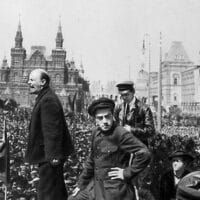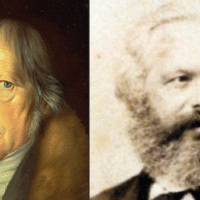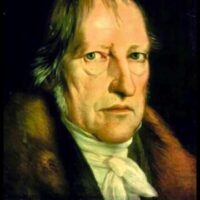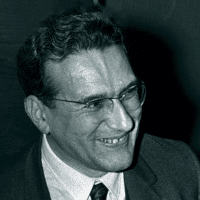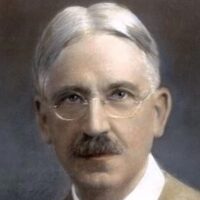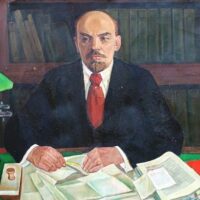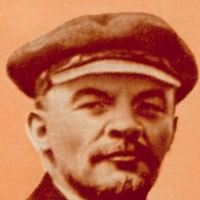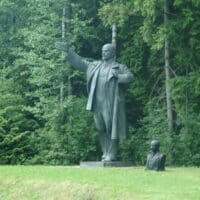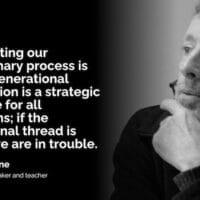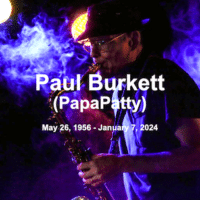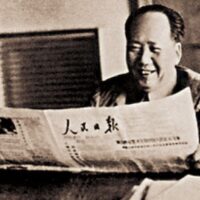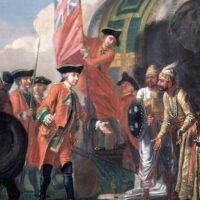-
Defending materialism: Lenin the philosopher
NICK MATTHEWS looks at the great Bolshevik leader’s intense three-week period of furious study in the British Library in 1908 and the timeless classic on Marxism and philosophy it produced: Materialism and Empirio-Criticism.
-
The dialectic in the service of revolution
Karl Marx (1818-83), like Georg Wilhelm Friedrich Hegel (1770-1831) before him, emphasized that human societies can and do undergo dramatic transformations, moving from one social order to another where each formation is governed by its own distinct laws, and a discontinuous logic separates one social order from the next.
-
A word like peace is faster than the bullet of war: The Seventh Newsletter (2024)
On 26 January, the North Atlantic Treaty Organisation (NATO) announced the start of a massive military exercise called Steadfast Defender 2024 that will continue until the end of May.
-
The Organism as a Subject: Hegel on Nature, Subjectivity, and Interconnectedness
In his thesis entitled Agency and Organisation, Rasmus Haukedal highlights the remarkable mutual relevance of recent theoretical trends in biology and the dialectical approach to (living) nature as developed by Hegel, Engels, and others (Haukedal 2022).
-
Ernest Mandel – “Hope and Marxism: Historical and Theoretical Essays”
Some of Ernest Mandel’s finest work on Marxist theory and revolutionary politics appeared in the form of short articles. “Hope and Marxism” collects eleven of Mandel’s most significant articles and provides an excellent introduction to his thought.
-
UK judge rules in favour of university professor sacked for anti-Zionist views
Academic David Miller was dismissed from the University of Bristol in 2021. Lawyers say the new ruling marks a ‘significant triumph’ for free speech in the workplace.
-
Book review: ‘Pragmatism versus Marxism’
Written by Marxist philosopher George Novack (1905-1992) and published in 1975 by Pathfinder Press, “Pragmatism versus Marxism: An appraisal of John Dewey’s Philosophy” sought to explain the origins, emergence, class basis, and norms of pragmatism, which has been the predominant mode of thought in U.S. intellectual and political life.
-
Five of Lenin’s insights that are more pertinent than ever
Lenin’s understanding of the workers state must also take into account the adjustments that had to be made in the post-revolutionary period, when it became clear that emphasis had to be put on developing the productive forces and an efficient state that could guide the process of destroying the global inequalities between imperialist and imperialized nations.
-
The entry of a new German Left Party shakes up the Country
The new formation is led by Sahra Wagenknecht (born 1969), one of the most dynamic politicians of her generation in Germany and a former star in Die Linke, and Amira Mohamed Ali. It is called the Sahra Wagenknecht Alliance for Reason and Justice (Bündnis Sahra Wagenknecht, BSW) and it launched in early January 2024.
-
Germany backs Netanyahu for the same reason it created Hitler
On 12 January, the day commemorating the 1904 revolt of the Herero people against German colonialism, Olaf Scholz’s government announced that it would intervene in the International Court of Justice to oppose South Africa’s charge of genocide against Israel.
-
Learning from Lenin today
One hundred years since Lenin’s death, Nigerian socialist Abiodun Olamosu describes of the revolutionary on his own political development. As the preeminent organiser of the Russian revolution, Lenin helped to determine the course of Olamosu’s life in Nigeria. Olamosu explores the development of Lenin’s work and legacy. He regards Stalin’s rise to power, and the Soviet Union, as an abomination to the body of ideas of Marxism and socialist internationalism.
-
The dialectics of constituted and communal power: A conversation with Ángel Prado
The main spokesperson of El Maizal Commune is trying to put institutional power at the service of the commune.
-
The theoretical significance of Lenin’s “Imperialism”
The theoretical position informing “Imperialism” extended Marxism in at least five major ways.
-
Vicissitudes of grassroots media: A conversation with Thierry Deronne (Part II)
A documentary filmmaker long associated with the Bolivarian Revolution talks about the history of its audiovisual production and the challenges ahead.
-
Paul Burkett (PapaPatty)
An intellectual and scholar, Paul published many books, journal articles, notes, reviews, and book chapters in his field. He felt his most important books are Marx and Nature: A Red And Green Perspective (1999) and Marxism and Ecological Economics (2006). He was passionate about his work, Socialism, the planet, and justice.
-
Paul Burkett, rest in power
In memory of Paul Burkett, Marxist scholar and jazz musician, 1956-2024.
-
In Xi Jinping’s China, is Chairman Mao back?
On the 130th anniversary of the founder of People’s China’s birth, BEN CHACKO asks whether media hype about Xi as a new Mao rings true – or whether the country’s trajectory has really changed that much.
-
Aleksandr Buzgalin and his time
Dimitris Konstantakopoulos: ‘The last time I saw Aleksandr was last June, in the nice café where he often used to make his appointments, on the former Gorky Avenue (which the recent “Restoration” renamed Tverskaya, as if to assure us that Money is the enemy of Culture), near Pushkin Square and a little further away from the Mayakovski metro station.’
-
‘The Hitleryugend’ or ISIS Israel: The two Kooks who Nationalized Judaism
The phenomenon of religious Zionism originates in the teaching of two of the most respected Zionist rabbis, a father and son, belonging to the Kook family.
-
An education policy for colonizing minds
A pre-requisite for freedom in the third world therefore is to shake off this colonisation of the mind, and to seek truth beyond the distortions of imperialism.

